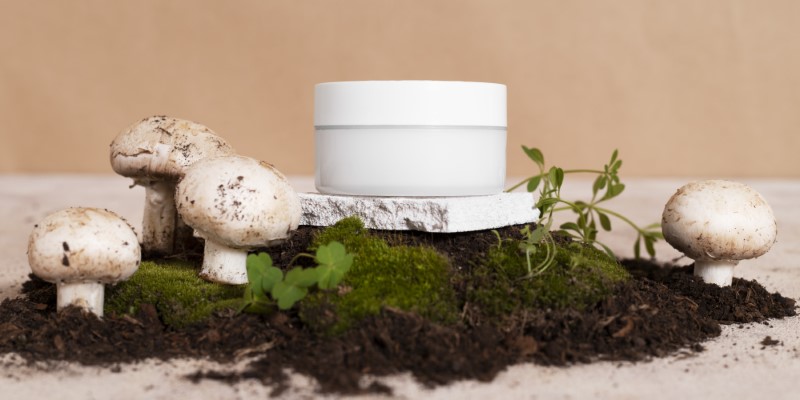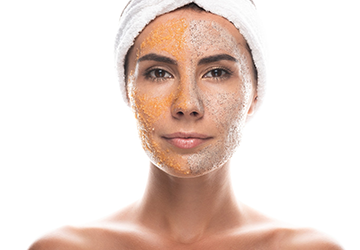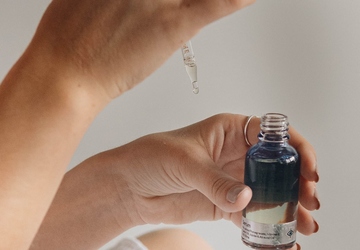What Is Microbiome-Friendly Skincare And Does It Matter?
In recent years, microbiome-friendly skincare has gained significant attention in the beauty industry. As consumers become increasingly aware of the relationship between their skin health and the microorganisms that inhabit it, the demand for products that support this delicate ecosystem has surged. But what exactly is microbiome-friendly skincare, and why is it important? This article aims to clarify these concepts while discussing how you can choose the right products for your skin.
Understanding The Skin Microbiome
The skin microbiome is a diverse community of microorganisms, including bacteria, fungi, and viruses, that inhabit our skin's surface. These organisms are vital for maintaining skin health by forming a protective barrier against pathogens and environmental stressors. A balanced microbiome helps keep skin hydrated, reduces inflammation, and can prevent conditions like acne and eczema. Factors such as age, diet, lifestyle, and skincare products can alter the microbiome, and disruptions, known as dysbiosis, may lead to skin problems. Therefore, it's essential to select products that nurture rather than harm this delicate microbial balance.

The Importance Of Microbiome-Friendly Skincare
Microbiome-friendly skincare matters because it recognizes the skin as a living ecosystem that requires care and respect. When the skin microbiome is well-balanced, it can effectively fend off harmful bacteria, maintain moisture levels, and promote overall skin health. Conversely, when the microbiome is disrupted, the skin may become more susceptible to irritation, inflammation, and various skin conditions.
One key benefit of microbiome-friendly products is their potential to reduce skin sensitivity. The harsh chemicals, alcohol, and perfumes found in many traditional skincare products can strip the skin of its natural oils and disturb the microbiome. In contrast, microbiome-friendly skincare products often use gentle, natural ingredients that support the skin's barrier function and promote healing.
Moreover, investing in microbiome-friendly skin care can lead to long-term benefits. Rather than just addressing surface-level issues, these products work to restore the skin's natural balance, resulting in healthier skin over time. This approach emphasizes prevention and care rather than just treatment, aligning with a more holistic view of skincare.

Key Ingredients In Microbiome-Friendly Skincare
When selecting microbiome-friendly skincare products, certain ingredients stand out for their beneficial properties. These ingredients work to nourish and support the skin's microbiome while promoting overall skin health.
Probiotics And Prebiotics
Probiotics, known as "good bacteria," are live microorganisms that enhance skin health by replenishing the skin's natural flora and supporting a balanced microbiome. Prebiotics are compounds that nourish beneficial bacteria, creating a favorable environment for the microbiome to thrive and promoting overall skin wellness.
Plant-Based Extracts
Plant-based extracts like aloe vera, chamomile, and green tea provide anti-inflammatory and antioxidant benefits, soothing the skin while strengthening the skin barrier against environmental stressors. These extracts also contain natural compounds that support the growth of beneficial microorganisms, promoting overall skin health and resilience.
Fermented Ingredients
Fermentation breaks down complex compounds into simpler, more bioavailable forms, enhancing their benefits for the skin. Ingredients like fermented rice water or sake are nutrient-rich and contain enzymes that nourish the skin while offering natural probiotic properties, further supporting the health of the skin microbiome.
Fatty Acids
Fatty acids, particularly omega-3 and omega-6, are crucial for maintaining the skin's lipid barrier. This barrier helps to retain moisture and protect against irritants. Microbiome-friendly skincare products often include oils rich in these fatty acids, such as jojoba oil, sunflower oil, or hemp seed oil, to keep the skin hydrated and healthy.
Antimicrobial Ingredients
While supporting beneficial bacteria is essential, it’s also important to keep harmful bacteria in check. Microbiome-friendly products often include natural antimicrobial ingredients, like tea tree oil or honey, which can help to prevent infections without disrupting the overall balance of the skin microbiome.

Choosing The Right Microbiome-Friendly Products
Selecting the right microbiome-friendly skincare products can feel overwhelming, given the variety of options available. However, by focusing on a few key factors, you can make informed decisions that benefit your skin.
Read The Ingredients List
When shopping for skincare products, always check the ingredients list. Select products that emphasize natural, calming components over those with strong chemicals or artificial fragrances. Aim for products that list probiotics, prebiotics, and plant-based extracts among the first few ingredients.
Patch Test New Products
Do a patch test before adding a new product to your skincare regimen in its entirety. Apply a small amount of the product to an inconspicuous area of your skin and observe for any adverse reactions over 24 hours. This step helps to ensure that the product is compatible with your skin type and does not cause irritation.

Consult With A Dermatologist
If you have specific skin concerns or conditions, consulting with a dermatologist can provide personalized recommendations for microbiome-friendly products. A dermatologist can help identify the right ingredients and formulations for your skin type, ensuring that you choose products that support your unique microbiome.
Be Patient And Consistent
Results from microbiome-friendly skincare products may not be immediate. It takes time for the skin to adjust and for the microbiome to rebalance. Be patient and maintain a consistent routine to see the best results. Regular use of microbiome-friendly products can help improve skin health and prevent future issues.
The Future Of Skincare
As the understanding of the skin microbiome continues to evolve, so does the skincare industry. More brands are developing microbiome-friendly products, recognizing the growing consumer demand for formulations that support skin health. This shift reflects a broader trend toward holistic wellness, emphasizing the importance of nurturing the skin's natural ecosystem.
Moreover, advancements in scientific research are likely to lead to more targeted and effective microbiome-friendly skincare options. Future formulations may include even more specialized ingredients that cater to specific skin concerns while promoting overall skin health. As consumers become more educated about the significance of the microbiome, they will likely demand transparency and efficacy in the products they choose.

Conclusion
Microbiome-friendly skincare represents a significant shift in how we approach skin health. By understanding the skin microbiome and the importance of nurturing it, consumers can make more informed choices about their skincare products. Investing in microbiome-friendly products can lead to healthier skin, reduced sensitivity, and long-term benefits.
As the industry continues to evolve, staying informed about the latest research and product innovations will empower individuals to choose skincare solutions that truly matter for their skin health. By prioritizing the balance of the skin microbiome, we can all work toward achieving a vibrant and resilient complexion.





